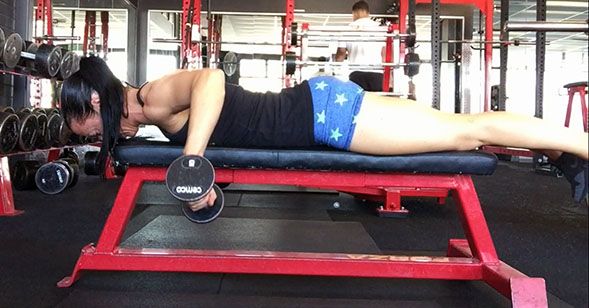Improving Shoulder Stability
In the last few months of last year, I started to feel some shoulder pain while squatting, as frustrating as it was, I found I could push through it and still make some great squat progress. However, I wasn’t making any bench progress. I put this down to going on an overseas holiday and not benching as much during that time. My bench definitely suffers if I don’t keep it up regularly. However, my bench started to go backwards and my shoulder pain increased. I knew it was time to get it checked out (I wanted bench gains!).
I went to an osteopath who diagnosed me with a winged scapula and a shoulder impingement. Nothing major, but enough to affect my lifting and I knew that if I didn’t take steps to address the issue, it was only going to get worse.
So rehab it was! I’ve had injuries in the past and once I acknowledged this one, the goal was to fix it. I have previously written a post on coping with injuries, which you may find useful. But below are the key things I did to get on top of my shoulder niggles.
- Took a step back from my bench press. I knew my bench wasn’t going to improve until I could get my shoulders more stable. I therefore took the weight down and only benched as much as I could with perfect technique.
- Took out movements in my program that I knew where aggravating my shoulder, such as overhead presses.
- Incorporated shoulder mobility work which I did 5-7 days per week for 5-6 weeks. Rolling on my hockey ball while moving my arm. To help with my limited range of movement.
- Incorporated shoulder rehabilitation exercises which I did 5 days a week for 5-6 weeks, and continue to do so. My shoulder, even though is better, it still is not 100%. Below are the exercises that have helped me. All of these exercises I do slowly, with light weight and with control, as well as with high repetitions (20 reps). This is to aid in shoulder stability and endurance.
Lawn mower cable pull
Prone reverse fly
Prone bench superman
One-handed swiss ball wall push-up
Rehab exercises can be ‘boring’ however they are essential to do if you want to improve an injury, not just for lifting, but for everyday life. Make a commitment to work on rehab if you do have an injury. You’ll thank yourself in the long run!

